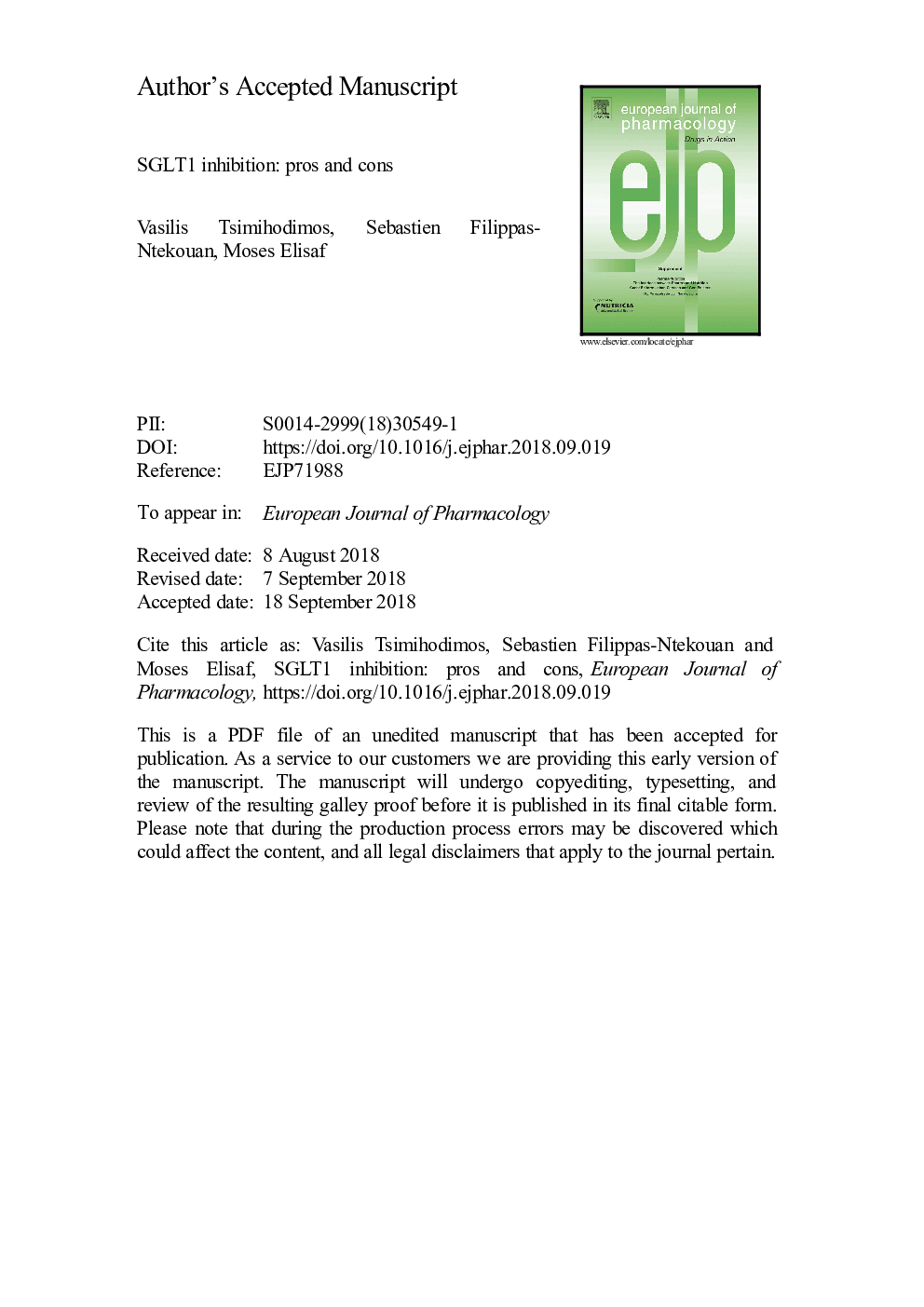| Article ID | Journal | Published Year | Pages | File Type |
|---|---|---|---|---|
| 10158442 | European Journal of Pharmacology | 2018 | 19 Pages |
Abstract
Sodium Glucose Cotransporters 1 (SGLT1) play important roles in the intestinal absorption of glucose and the renal reabsorption of glucose, especially in patients with uncontrolled diabetes and those receiving SGLT2 inhibitors. As a consequence, the inhibition of SGLT1 transporters may represent an interesting therapeutic option in patients with diabetes. However, genetic models of SGLT1 inactivation indicate that the malfunction of these transporters may have adverse effects on various tissues. In this review, we discuss the available evidence on the beneficial and detrimental effects that the inhibition of SGLT1 transporters might have. The inhibition of SGLT1 lowers serum glucose levels through the inhibition of intestinal absorption and renal reabsorption of glucose. In addition, drugs that interfere with SGLT1-mediated transport of glucose may protect cardiac tissue by reducing glycogen accumulation and decreasing the production of reactive oxygen species. On the other hand, this strategy may result in diarrhea, volume depletion, may interfere with the correction of hypoglycemia through the oral administration of carbohydrates and could predispose to the development of euglycemic diabetic ketoacidosis. Therefore, at the moment, SGLT1 inhibition seems to represent a two-edged sword.
Keywords
Related Topics
Life Sciences
Neuroscience
Cellular and Molecular Neuroscience
Authors
Vasilis Tsimihodimos, Sebastien Filippas-Ntekouan, Moses Elisaf,
